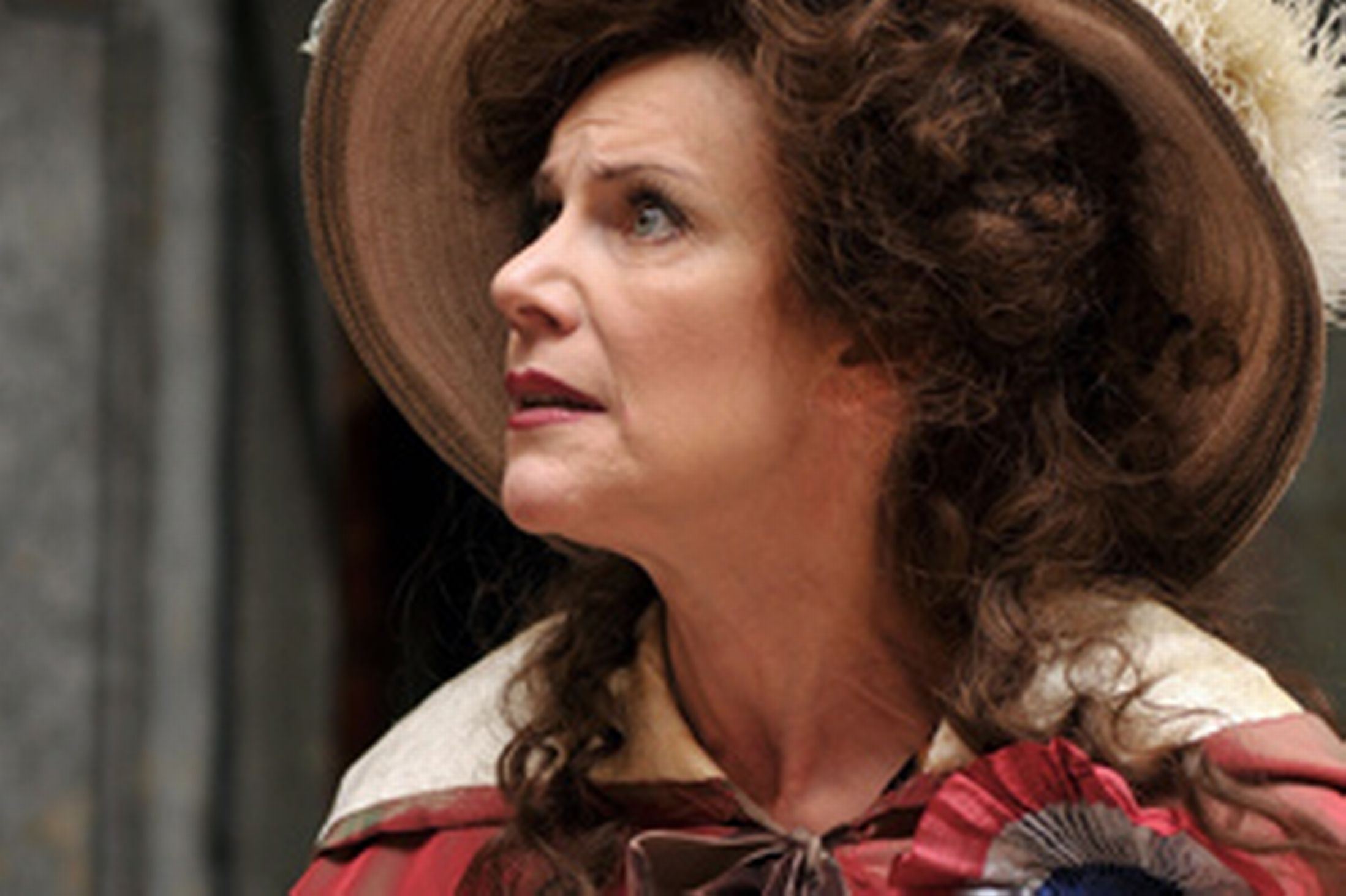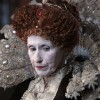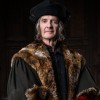Verse Makes A Comeback
written for Standpoint Magazine, August 2008

Belinda Lang in Glyn Maxwell’s Liberty
For the third time in a month I find myself invited to a play in verse. The renaissance of verse drama is an unexpected 21st-century phenomenon. Still common in the 19th century (think Ibsen and Oscar Wilde), verse drama became a rarity in the 20th century, with a handful of exceptions: T.S. Eliot and Christopher Fry led a revival between the wars and Caryl Churchill produced the 1980s hit Serious Money. But only Tony Harrison has been able to earn a living by writing exclusively in verse.
The received wisdom is that the culture of modernity does not favour structured art forms: fragmented lives must be depicted through fragmented methods. Yet as society grows increasingly nostalgic for traditional structures, it seems that the theatre world is experimenting with ways to recreate them.
Now the Globe is staging Glyn Maxwell’s Liberty which dramatises the beginning of the modern era, the French Revolution, in utterly pre-modern hexameters. It is not the only new play this summer to channel a sharp critique of French politics through the medium of formal verse. Max McGuinness’ Edinburgh Fringe show Up the Republic! takes the audacious step of satirising Nicolas Sarkozy’s politics in perfect rhyming couplets. On the other side of the Atlantic, the Poetry Foundation has just awarded its inaugural Verse Drama prize, although its director, John Barr, is cautious about the level of resurgence: “We’re not trying to ride a wave, we’re trying to create one.”
At the vanguard of this revival is Joanna Laurens, recent writer-in-residence for the RSC. Like the “translator” poets, such as Ted Hughes and Seamus Heaney, who have popularised the return of the epic poem, Laurens, who is just 30, takes her narratives and base structure from the classics. Her debut play, The Three Birds (2000), is a dramatic reworking of Ovid’s tale of Procne and Philomela. Her third play, Poor Beck, applies the same technique to his story of the incestuous Myrrha.
Yet Laurens and her ilk – such as Zinnie Harris, whose award-winning Further than the Furthest Thing played in both New York and London – do not represent merely a return to classicism. Laurens’s plays draw their greatest strength from the creation of a new poetic language for her characters, each speaking in a dialect with its own peculiar speech-rhythms. Yet poet-playwrights, whether Laurens with her poetic patois or McGuinness with his Alexandrines, all seem to represent a backlash against the plain speaking that dominated 20th-century British theatre, from Harold Pinter to Edward Bond. Prose is naturalistic, poetry is not. As McGuinness puts it: “The advantage of writing in verse is that it entails an immediate suspension of disbelief – utterly aesthetically liberating.” All the same, forays into this genre are no guarantee of success: Michael Frayn’s Afterlife, which experiments with verse, has met with mixed reviews.






